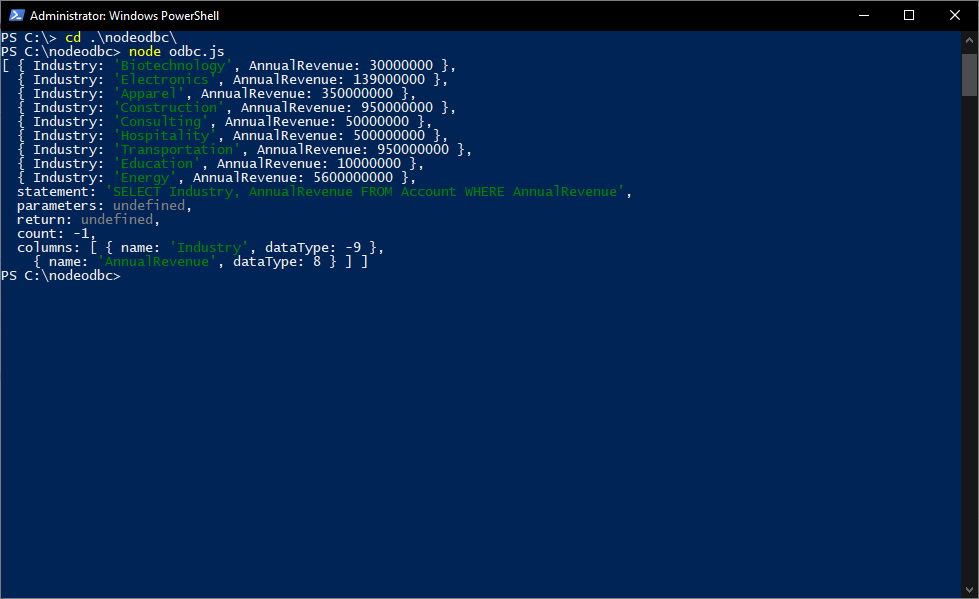Discover how a bimodal integration strategy can address the major data management challenges facing your organization today.
Get the Report →Query Odoo Data through ODBC in Node.js
Use node-odbc to execute SQL queries against Odoo data from Node.js.
Node.js is a JavaScript runtime environment that allows you to run JavaScript code outside of a browser. With the CData ODBC Driver for Odoo, you can access live Odoo data from Node.js apps and scripts. In this article, we walk through installing node-odbc and the required tools to create a simple Node.js app with access to live Odoo data.
With built-in optimized data processing, the CData ODBC Driver offers unmatched performance for interacting with live Odoo data in Node.js. When you issue complex SQL queries from Node.js to Odoo, the driver pushes supported SQL operations, like filters and aggregations, directly to Odoo and utilizes the embedded SQL engine to process unsupported operations client-side (often SQL functions and JOIN operations).
Connecting to Odoo Data
If you have not already done so, provide values for the required connection properties in the data source name (DSN). You can use the built-in Microsoft ODBC Data Source Administrator to configure the DSN. This is also the last step of the driver installation. See the "Getting Started" chapter in the help documentation for a guide to using the Microsoft ODBC Data Source Administrator to create and configure a DSN.
To connect, set the Url to a valid Odoo site, User and Password to the connection details of the user you are connecting with, and Database to the Odoo database.
Building node-odbc
In order to connect to Odoo through the CData ODBC Driver, you need to build node-odbc manually (after installing the required tools).
Installing the Required Tools
The following commands install the tools required to build node-odbc (note the -g parameter, which installs the tools globally).
npm i -g windows-build-tools npm i -g node-gyp
Building node-odbc
After installing the required tools, create a directory for the Node.js app and install odbc (which builds the binary for us to use in our Node.js script).
mkdir nodeodbc cd nodeodbc npm i -g node
Querying Odoo from Node.js
With the ODBC Driver installed, a DSN Configured, and node-odbc built, we are ready to query live Odoo data from a Node.js app. The sample code below connects to a specific DSN and queries the res_users table.
myscript.js
const odbc = require('odbc');
async function queryOdoo() {
const connection = await odbc.connect(`DSN=CData Odoo Source`);
const data = await connection.query('SELECT name, email FROM res_users');
console.log(data);
}
queryOdoo();
Once you write the app, use node to execute the script:
node myscript.js

Download a free, 30-day trial of the CData ODBC Driver for Odoo and start working with your live Odoo data in Node.js. Reach out to our Support Team if you have any questions.






